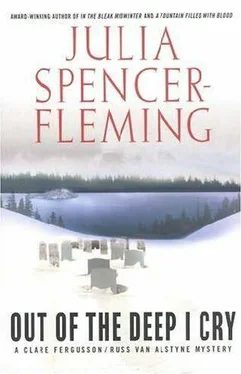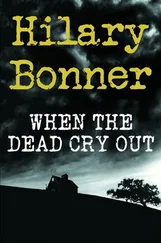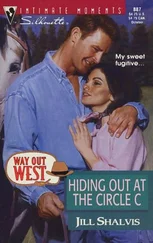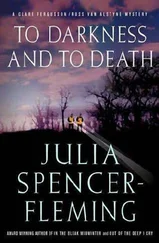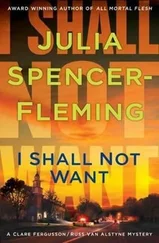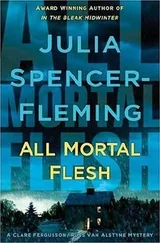“Diphtheria?”
“I suppose so. Businesses were the moving force behind…” He was on a roll now, recounting the movement to dam the river and the formation of the regulating board, but his words flowed past Clare like the river itself. She felt the awful weight of it, the rushing of her own blood the sound of the water. The river had run through Jane and Jonathon Ketchem’s life, bringing them good rich soil and cool summer days and the disease that destroyed their family. And then it had washed them away and cast them up in the village of Millers Kill, where Jane had lived out her days, pouring her grief into her remaining child until the mother Mrs. Marshall might have been sank beneath the depth of it, ensuring no more children to be carried away, ever. And Jonathon? Clare had a sudden, piercing conviction she knew where he had gone. Not to start over again, as his daughter had grown to believe. Clare could see him, as clearly as if she had been there, driving his car far away from the town, back toward his burned, wrecked farm, back toward the road that ran by the river that had sluiced through his life. When was it Mrs. Marshall had said her father disappeared? March 29, 1930.
“When was the dam completed?” she said, cutting off the librarian’s discourse on the railroad’s suit for compensation. “When did the valley start flooding?”
“Nineteen thirty.”
“But when? What date?”
“Ah,” he said, his eyebrows knitting together. He got up again, reaching his hand out, as if the book he needed could fly off the shelves into his grasp. He pulled a narrow paperback off a shelf, flopped it open, and flicked through a few pages. “March 27, 1930.”
Two days before Mrs. Marshall’s father disappeared. He probably couldn’t have made it to that road by then. He would have known which way to head, though. He must have made the trip dozens of times in the past, between the town and the farm, so that his hands on the wheel would have known the way, even at night. Even with every landmark cut down, torn away, burned. He would have kept on driving, the water rising around his wheels, until his engine submerged and he could no longer drive. Then he would have gotten out, wading through the pitch-black, icy water, rising as he pressed on into the valley, rising as the snowmelt-swollen mass of it piled up behind the new dam, rising until he couldn’t feel his legs or his arms or his chest for the cold of it. And still she could see him walking, walking farther and farther, until he disappeared from sight forever. Heading home.
NOW
Clare rested the box of one dozen of Kreemy Kakes’ finest on the counter of the nurses’ station and smiled at the woman typing away at a computer behind it. “I’m looking for Russ Van Alstyne’s room?”
“Mr. Van Alstyne.” The nurse glanced at a clipboard stretched to its limit with a sheaf of papers. “Oh, yes. The broken leg. He’s in 403.”
“Thank you.” Clare settled the box beneath her arm and made her way down the hall. The door to room 403 was closed. She knocked.
“Come in,” Russ yelled.
She sidled through the door. He was alone in the two-bed room, propped up at an angle, his injured leg slung between a pair of struts assembled at the end of the bed. His cast ran from the ball of his foot to below his knee, and was highway-department orange. It reminded Clare of one of the Tonka cranes her brothers had played with back when they were kids. He was talking on the bedside phone.
“I’m sorry, go on.” He beckoned Clare into the room. “No. No, it’s not my mom.” He glanced at Clare, and his eyes fell on the box she was holding. “It’s just someone dropping off some food,” he said.
She raised her eyebrows.
“How much extra?” he asked. He held out his hand for the doughnuts. “Six hundred bucks? For a one-way flight? That’s ridiculous! I thought it was like a fifty-dollar fee to change your departure date.”
Clare handed him the box, which he dropped in his lap. He flashed her a distracted smile, then frowned.
“Why do you have to buy a whole new ticket? That’s three times what you paid to get down there.”
Clare glanced around and spotted a boxy little chair of blond wood and fake leather in the corner. It looked as if it had been designed to discourage long bedside chats. She pulled it away from the wall.
“See, that’s why I hate the idea of those Internet specials. If you’d have paid a little more to start out with, you’d have more flexibility now.”
Clare paused before sitting down. Maybe getting a soda would be a good idea at this point. The newspaper. A magazine.
“Maybe you shouldn’t.” She glanced over toward Russ, but his face was turned toward the room’s other, empty bed. “I mean, you just got down there yesterday. You only get to see your sister once a year. I don’t want to ruin it for you.” Clare watched as he twisted the phone cord back and forth in one hand. “I could ask Mom to come stay with me until you get home.” He tilted his head back and squinted at the ceiling tiles. “I don’t know. I might be able to drive one of the squad cars. They’re automatic. There’s nothing wrong with my right foot.” He glanced over at Clare, then looked away. “I know you do. And I want you home, too. I’m just thinking six hundred dollars is a lot to pay for the privilege of playing my nursemaid.” He flicked at the hospital-issue blanket covering him from knees to stomach, brushed it as if something unclean were stuck to it. He smiled a little and pushed a laugh out. “Not until my leg’s healed up some more, we’re not.”
Enough eavesdropping. Way more than enough. Clare pasted a social smile on her face and waved bye-bye. Russ shook his head sharply. “All right, honey, if you feel that strongly about it, sure. Yep, you’re right, it’s not like we don’t have the money. But don’t try to get a flight tonight. I’m going to be here at least till tomorrow afternoon.” There was a long pause. “Do you think you can get your friend Meg to do it? Okay, that’ll be fine.” Clare took one step, then another, toward the door. Russ held up one hand. “Honey? I think I need to get off now. Yeah, there’s someone waiting for me.” His eyes cut away from Clare. “Yes. I will.” There was a final pause. “I love you, too. Bye.” He twisted away from Clare and hung up the phone.
“Linda,” he said.
“I gathered.”
He looked down at the box of doughnuts as if he had forgotten putting them on his lap. “Thanks.”
“I figured you’d like them more than flowers.”
He smiled to himself, still not looking at her. She wondered how much he remembered about his behavior while he was pumped full of painkillers and whether she ought to mention anything. Set his mind at ease.
He popped open the top and took out a French cruller. “You want one?”
She got just close enough to take a peanut-covered doughnut while still maintaining the maximum degree of personal space. Okay, she thought, now I’ll tell him he was stoned and being silly and it gave me a good laugh on the way to the historical society. And I’ll ask him all about how Linda’s doing and how soon she’s getting home. She opened her mouth, but what came out was, “Did you know that the Ketchem graveyard was part of a property that was flooded when the Sacandaga was dammed?”
He stopped, a bite of cruller half in, half out of his mouth. His expression spoke even though he couldn’t: a polite So what?
“Jane Ketchem and her husband lived there. The couple that lost the children. She’s the one who went on to found the free clinic. It was named after her late husband. He disappeared in 1930. Mrs. Marshall, who’s on our vestry, is her daughter.” She knew she was babbling, but once she got going, she couldn’t seem to stop it. “She thinks her father took off for a new life, but I’ve been thinking, and I think he killed himself. He drove off one night two days after the dam was finished. I think he went back to their old farm and drowned himself.”
Читать дальше
